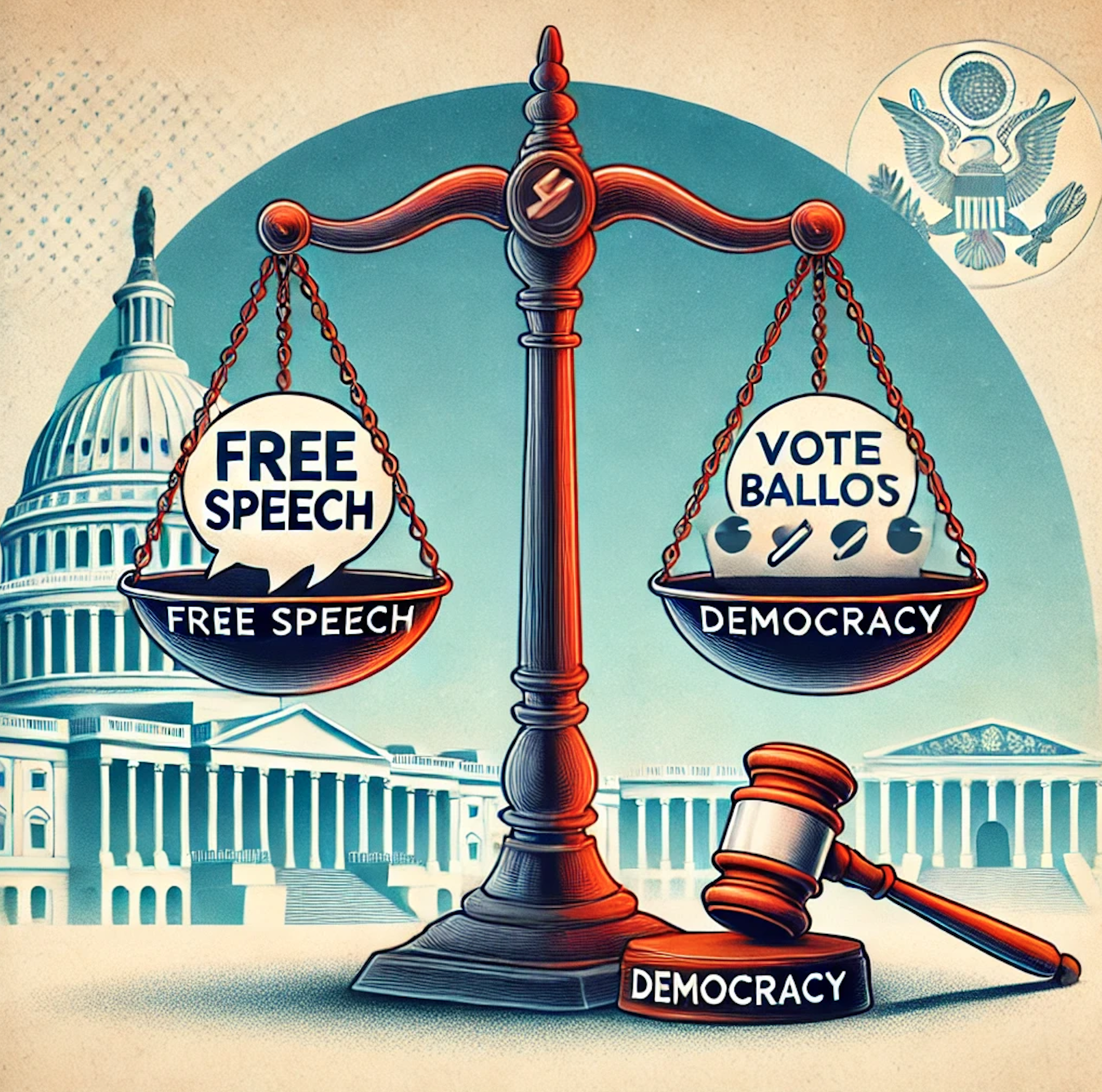Take X: Free Speech or Democratic Threat? Exploring Campaign Speech in My Internship Research
As part of my internship, I’ve been researching a critical question at the heart of modern democracy: Should the protection of free speech cover all aspects of campaign-related speech, even when it poses a threat to democracy? This issue has gained increasing relevance in light of contentious elections in both the United States and Indonesia, where the misuse of campaign speech has led to widespread voter distrust and challenges to democratic integrity.

The 2021 U.S. Capitol attack, sparked by Donald Trump’s false claims of election fraud, showcased how dangerous campaign-related speech can become when left unchecked. Trump's claims, which included accusations of widespread voter fraud and manipulation through mail-in ballots, culminated in violence aimed at disrupting the certification of Joe Biden’s victory. Now, as Trump faces criminal prosecution for those very claims, it raises the question of how far free speech protections should extend, particularly when that speech threatens to undermine the democratic process itself.
Similarly, Indonesia’s 2024 presidential election faced similar tensions. Prabowo Subianto, a former general, won the election, but his opponent Anies Baswedan contested the results, claiming election irregularities. Though Indonesia’s Constitutional Court dismissed the claims due to a lack of evidence, the situation mirrored the American experience of contested elections and unproven fraud allegations, showcasing how fragile voter trust can become when campaign rhetoric spirals into misinformation.
Campaign Speech and Democratic Principles
A major focus of my research is examining how democratic principles like free speech and election laws have developed over time in both the U.S. and Indonesia. In the U.S., free speech is a cornerstone of democracy, and for good reason—historically, it’s allowed marginalized voices to fight for their rights. However, recent elections show that even long-standing democracies are not immune to threats when free speech is weaponized to spread misinformation.
Indonesia’s path to democracy is more recent, beginning after the fall of the Suharto regime in 1998. Since then, the country has embraced democratic reforms, including the introduction of direct presidential elections in 2004. While these reforms have brought more transparency to the process, challenges like vote-buying and baseless fraud claims persist, threatening to erode trust in the system.
The Danger of Unchecked Campaign Speech
The key question I’m exploring in my research is whether current laws in both countries adequately address the modern realities of campaign speech. Should free speech protections be absolute, or should there be limits when that speech incites violence or spreads falsehoods that destabilize democracy?
In both the U.S. and Indonesia, there are legal safeguards in place to protect the electoral process. In the U.S., the Voting Rights Act of 1965 and other laws work to prevent voter intimidation and fraud, while Indonesia has strict laws against vote-buying. However, enforcement is often inconsistent, and in both countries, misinformation and disinformation continue to shape elections.
The rise of social media has also made it easier for false information to spread rapidly, complicating the legal landscape. In the U.S., Trump's false election fraud claims spread quickly online, mobilizing millions of people and shaking the foundations of voter trust. Similarly, in Indonesia, baseless allegations of election fraud have been amplified online, leading to confusion and discontent among the electorate.
Where My Research Is Leading
As I continue my research, I’m looking into whether existing legal frameworks are enough to protect democracy from the misuse of campaign speech. In both the U.S. and Indonesia, it’s clear that while free speech is fundamental to a healthy democracy, unchecked, it can become a tool for undermining the system it’s supposed to support.
What’s needed are reforms that strike a balance between protecting free speech and holding individuals accountable when their words harm the democratic process. Both the U.S. and Indonesia have strong legal foundations, but in the face of modern election challenges—like the rapid spread of misinformation and deepening voter distrust—both nations may need to strengthen their regulations to ensure democracy is preserved.
This research is not just about understanding where the problems lie but about finding solutions. As both countries continue to grapple with balancing free speech and election integrity, the future of democracy could depend on how well we manage these complex issues moving forward.
For me, working on this research during my internship has been eye-opening. It’s made me realize that safeguarding democracy is an ongoing battle that requires constant attention, adaptation, and reform. The lessons from the U.S. and Indonesia's recent elections serve as reminders that free speech, while vital, must also be responsible—especially when it comes to campaign speech that can influence the course of democracy itself.